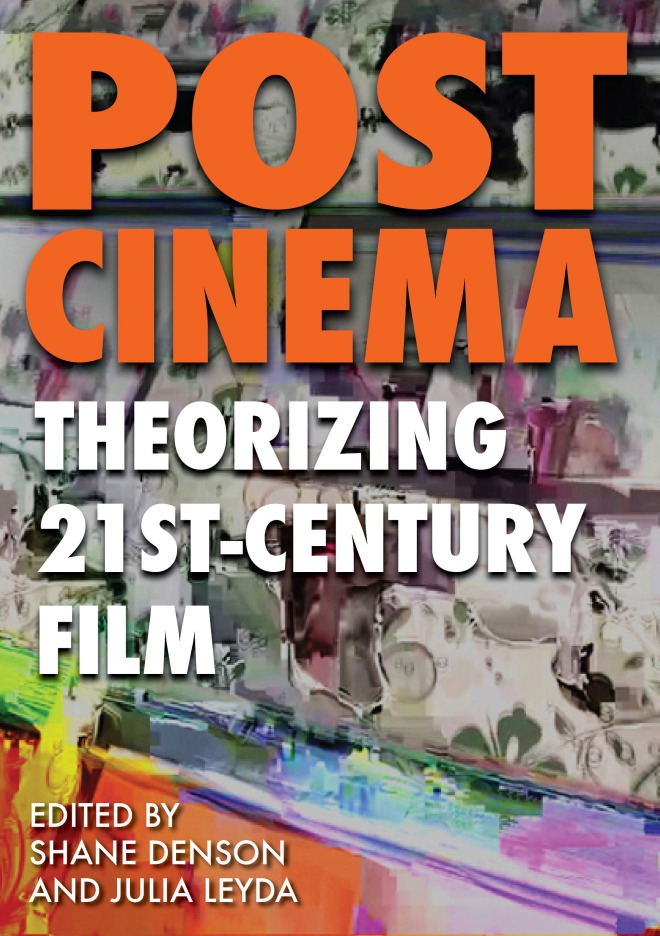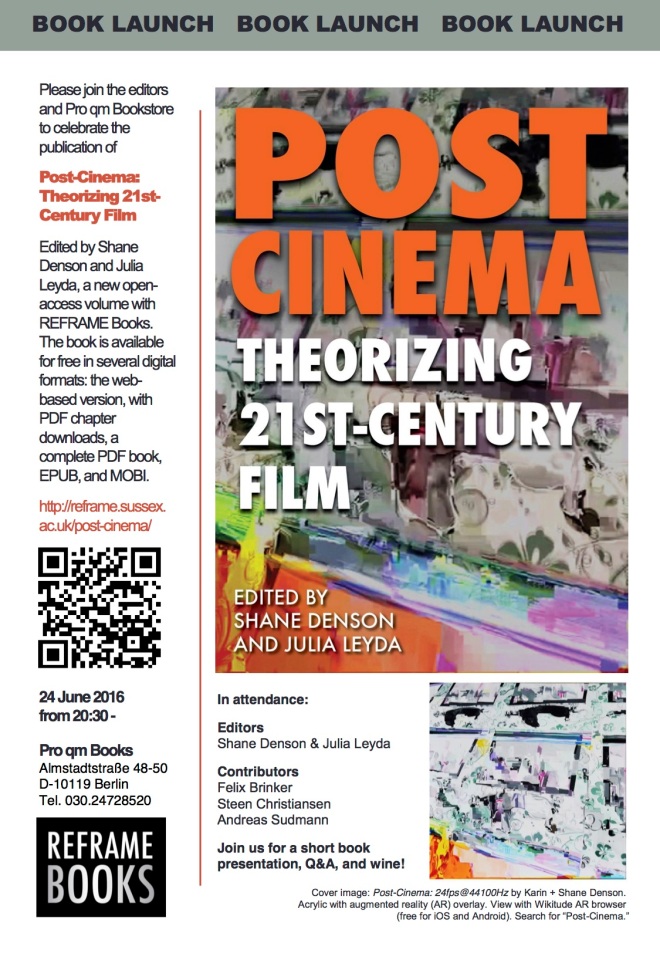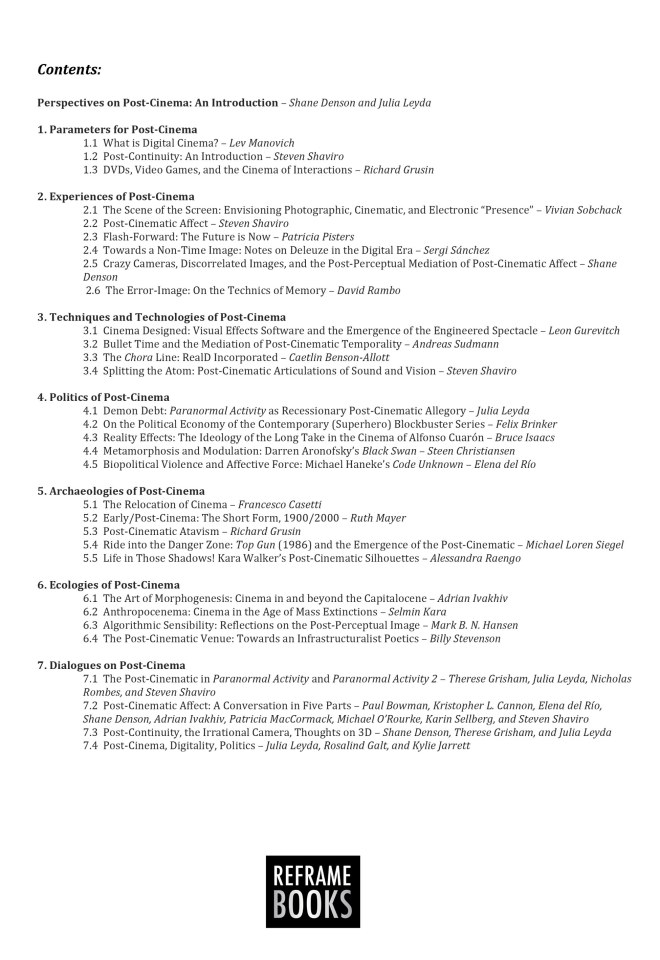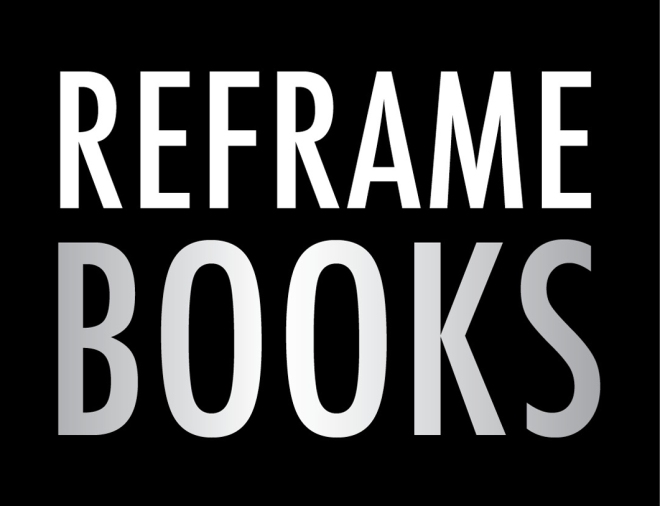
At long last, Post-Cinema: Theorizing 21st-Century Film is now available in a print edition! The 1000-page volume, originally published in open-access formats (HTML and PDF) in 2016, can now be purchased in a four-volume paperback format.
In accordance with the original Creative Commons license (CC BY-NC-ND), the paperbacks are sold at cost; the purchase price covers only the printing. As a result, they are quite affordable (around $8.00 each).
Here are the links to the individual volumes: Volume I, Volume II, Volume III, and Volume IV.
The book as a whole asks: If cinema and television, as the dominant media of the 20th century, shaped and reflected our cultural sensibilities, how do new digital media in the 21st century help to shape and reflect new forms of sensibility? In this collection, editors Shane Denson and Julia Leyda have gathered a range of essays that approach this question by way of a critical engagement with the notion of “post-cinema.” The contributions take as their critical starting-points concepts such as David Bordwell’s “intensified continuity” or Steven Shaviro’s “post-cinematic affect” and “post-continuity.” They expand and build upon the ideas of these and a range of other thinkers, with the goal of coming to terms with an apparently new media ecology that requires us to search for a fresh critical vocabulary. By examining the experiential, technological, political, historical, and ecological aspects of the transition from a cinematic to a post-cinematic media regime, the chapters explore key questions in breaking this new ground, seeking and articulating both continuities and disjunctures between film’s first and second centuries. Questions of aesthetics and form overlap with investigations of changing technological and industrial practices, contemporary formations of capital, and cultural concerns such as identity and social inequalities. The impact of digitization on taken-for-granted conventions is also in play: intermediality, new forms of distribution both licit and illicit, academic and critical reliance on genres and discrete media formats – all of these come under scrutiny as paradigms shift in the post-cinematic era.
Volume I comprises the Introduction and Parts 1 & 2, “Parameters for Post-Cinema” and “Experiences of Post-Cinema”:

Volume II comprises Parts 3 and 4: “Techniques and Technologies of Post-Cinema” and “Politics of Post-Cinema”:

Volume III comprises Parts 5 and 6: “Archaeologies of Post-Cinema” and “Ecologies of Post-Cinema”:

Finally, Volume IV comprises the conversations and roundtables contained in Part 7: “Dialogues on Post-Cinema”:





